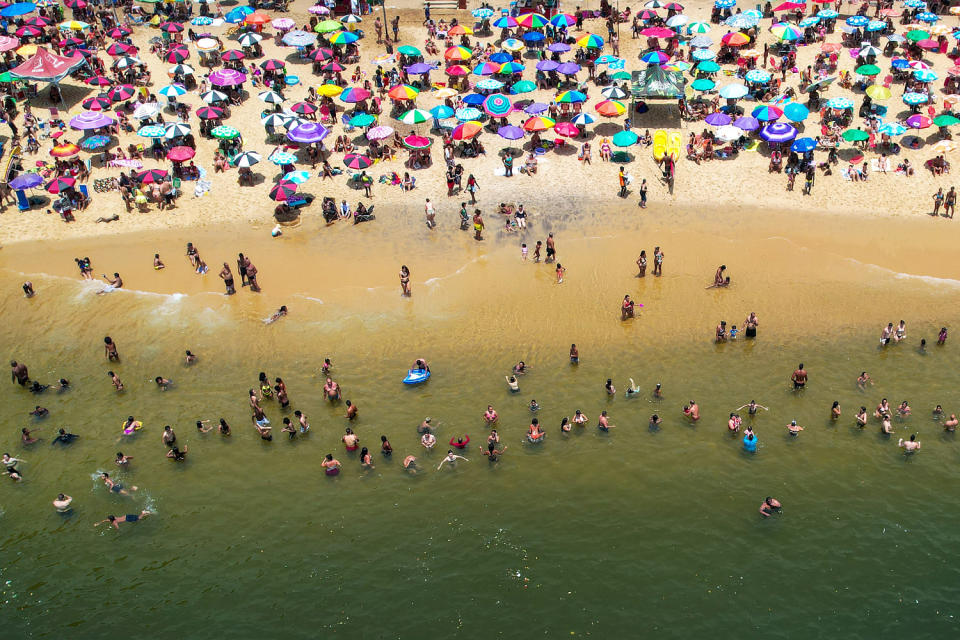Taylor Swift concert runs into brutal Brazilian heat wave
- Oops!Something went wrong.Please try again later.
The death of a Taylor Swift fan at her recent concert in Rio de Janeiro comes during a brutal heat wave that has hammered parts of Brazil.
Brazil’s National Institute of Meteorology was warning of “great danger” over the weekend as a ridge of high pressure remains parked over the region that included the city where Swift scheduled weekend shows. Temperatures in Rio climbed to 93 degrees Fahrenheit on Saturday, according to Weather Underground.
The city on Friday reported a heat index, or “feels like” temperature, of 138 F, which broke records, according to MetSul Meteorologia. The effects of Friday’s heat caused some fans attending Swift’s concert to pass out and forced later shows to be rescheduled.

The searing temperatures in Brazil, which have persisted for about a week, have set a slew of monthly and all-time temperature records, according to weather historian Maximiliano Herrera.
The high-pressure ridges driving the extreme temperatures were similar to those that bogged down the U.S. this summer, when places like Phoenix registered temperatures over 110 F for more than three weeks at a time. Climate change increases the odds of heat waves and can make them more intense.
The World Weather Attribution Network analyzed a heat wave in South America in September and found that climate change had dramatically increased the odds of such a dramatic stretch of heat. The group found that temperatures would have been 2.5 to 7.7 F cooler had humans not warmed Earth by consuming fossil fuels and emitting carbon pollution.
The World Weather Attribution group studies extreme weather and publishes rapid findings about climate change’s role in major events using peer-reviewed methods.
The past 12 months have been the hottest in modern history, according to the nonprofit organization Climate Central. Scientists believe the effects of El Niño, a natural climate pattern that releases ocean heat into the atmosphere, has begun to take hold and contribute to heightened temperatures.
In Brazil, El Niño typically has caused drought in northern parts of the country and extreme rain in the south, The Associated Press reported. Drought in the Amazon has dried up waterways this season, and fires have been burning in parts of the country’s tropical wetlands.
Many households in Brazil lack technology to cool their homes. About 20% of the country’s households owned air conditioning in 2018, according to a study in Nature Communications.
Swift rescheduled a show slotted for Saturday in Rio de Janeiro and instead took the stage Monday.
The incident left an impression on prominent voices in the climate community.
“Today would be a good day for Taylor to say a few words to her zillions of fans about the risks of life on a fast-warming planet and why we need to stop burning fossil fuels,” Jeff Goodell, the author of the climate change book “The Heat Will Kill You First,” wrote on X.
This article was originally published on NBCNews.com

